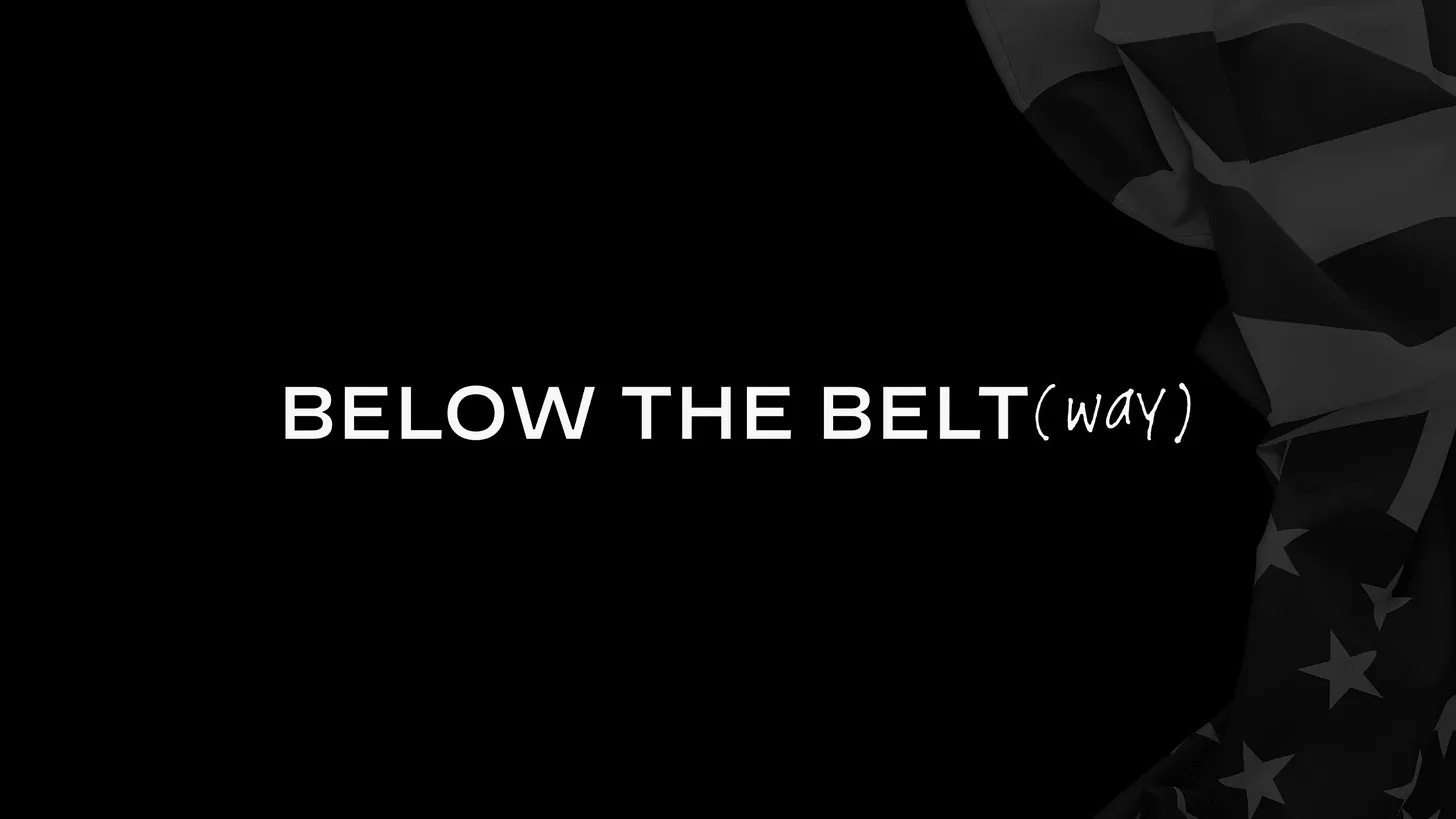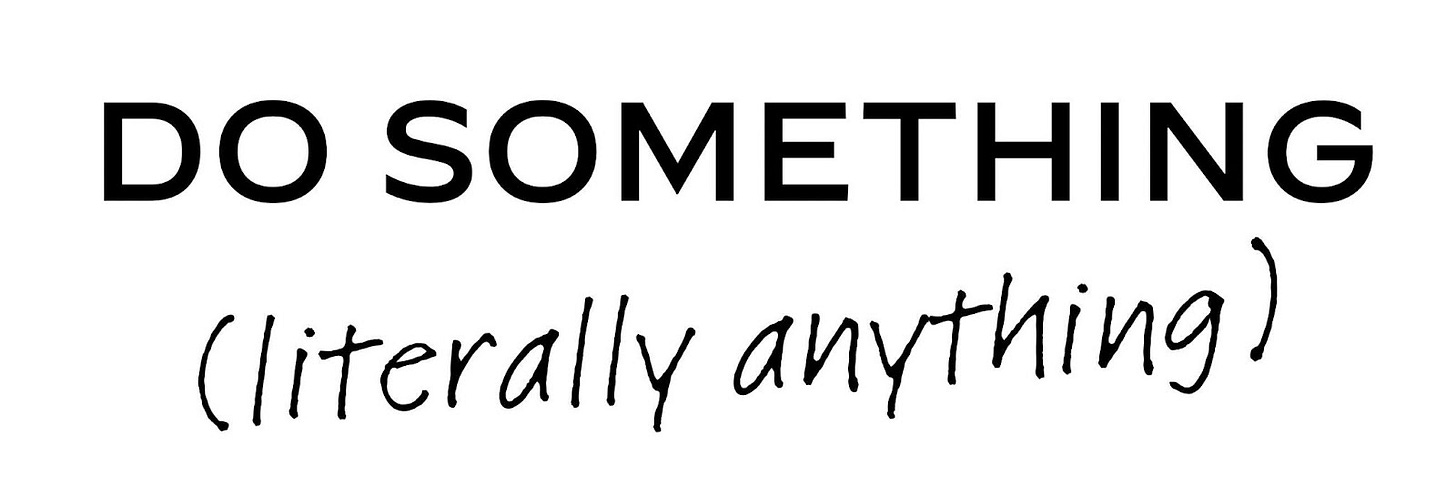Latest budget makes half of Nevada eligible for sale
ALSO INSIDE: Judge saves hundreds of health research grants from DOGE cuts
Cam here 👋 bringing you your daily dose of what people are doing – good, bad, and otherwise – in the world of politics. We’re diving into the stories you won’t see anywhere else. And remember, you can also keep up with me over on TikTok and Bluesky.
And if you’re looking for a little more from COURIER, Akilah Hughes’ new series, “How is This Better?” interviews Canadaland producer Noor Azhrieh about the future of US/Canada relations, and our docuseries “REPRESENT” follows Deja Foxx’s path from abortion rights influencer to congressional candidate.
What Happened
While President Donald Trump stokes a war in the Middle East over a problem he helped create, Senate Republicans have released the latest iteration of Trump’s budget proposal. In it, they’ve added another way to help pay for the nearly $4 trillion in tax cuts: Privatize public lands.
Selling public land is about as universally unpopular as cutting Medicaid and Social Security. Until recently, that fact has deterred politicians from touching public lands, but this year that’s changed. Republicans have essentially outlined a public land fire sale, complete with expedited timelines that cut out public input and over 250 million acres up for grabs.
While they only order agencies to sell 2 - 3 million acres, it designates hundreds of millions more as eligible to be sold. The designation opens the door to selling this land in the future, should more money be needed to subsidize future tax breaks for the rich.
The sheer amount of land some of these states could have privatized is mind-boggling: 48% of Nevada, 41% of Idaho, and 35% of Oregon and Utah.
The Wilderness Society put together a searchable map to see where exactly this sellable public land is, which is incredibly helpful for two reasons: it visualizes the sheer breadth of what’s been put on the chopping block, and it counters the argument Republicans gave for privatizing public lands, which is that it could be used to address the housing shortage.
“There is a nationwide shortage of approximately 4 million homes and a shortage of 7 million affordable homes,” the proposal explains. “Unlocking federal land for housing will develop millions of single-family homes, resulting in greater housing supply and making housing more affordable.”
But there’s a major problem with using the land listed as prime real estate for single-family homes, and it’s the same reason 75% of Nevada’s population lives in the Las Vegas area. While much of this land is perfectly suited for the wildlife that already lives there, it’s currently uninhabitable for humans.
Developing infrastructure to create housing on much of this land makes it financially impractical, as pro-privatization advocates have long pointed out, but logging, mining, or other business ventures that turn a profit at the expense of the environment are sure to attract buyers.
Or — who knows — this could simply be an opportunity to provide more billionaires a place to build doomsday bunkers.
Attempts to Sanewash
Mike Lee brings back proposal to sell public land in Utah, other Western states
Senate version of GOP tax bill makes key changes to housing, federal lands sections
Far-Right Spin
Trump’s attempt to cut health research ‘void and illegal’
A federal judge on Monday rejected the Trump administration’s attempt to take back nearly $1 billion in research grants in yet another judicial check on the president’s power.
The grant money in question had already been distributed, but US Health Secretary Robert Kennedy Jr. attempted to terminate the agreements anyway. His lawyers argued that the initiatives it funded were discriminatory—presumably against straight, white men—because they focused on subjects relating to diversity, equity, and inclusion.
Kennedy’s grant termination was an effort to bring his department in harmony with Trump’s executive orders ending any federal support or recognition of diversity, as Trump said it would be necessary to create “a society that is color-blind and merit-based.”
US District Judge William Young found the opposite to be true.
“Point me just anywhere in this record where it’s pointed out that any particular grant or group of grants is being used to support unlawful discrimination on the basis of race. From what I can see, it’s the reverse,” Young said. “You are bearing down on people of color because of their color. The Constitution will not permit that.”
Funding for over 360 grants listed in the lawsuit must now be returned while the lawsuit, filed by researchers and related trade associations and unions, goes to trial. If the suit is successful, $4 billion in canceled science and research grants would need to be reinstated. Restoring these grants would be another hit to Elon Musk’s DOGE, bringing the actual amount of spending they’ve cut down to $12 billion (minus legal costs).
US Rep. Brad Finstad, Minnesota’s 1st Congressional District
Since taking office in 2022, Rep. Finstad has:
Seen his net worth decrease from $7 million to $4 million
Sponsored 42 bills, none of which have been signed into law
Held no in-person town halls
Voted against the expulsion of disgraced US Rep. George Santos from Congress
Threatened an ethics investigation into Democratic US Angie Craig for holding town halls in his district
Released a bipartisan joint statement condemning the politically-motivated shooting in Minnesota
Fun Facts
One of the first bills Rep. Finstad introduced was the Audit and Return It Act, which would have created a system for the government to take back misused COVID relief funds to pay off the federal deficit. The proposal included an audit of Paycheck Protect Program (PPP) loans, which Finstad has an interesting history with.
Shortly after PPP loans became available, the staff of Finstad’s private company tripled from 11 employees to 33, for which he was loaned $160,000. The next year, he received a $155,000 PPP loan for his seemingly pandemic-proof business’ growing staff of 43 employees. Both loans were forgiven, and his company has since reduced its workforce back down to 11 employees.
One of his major accomplishments in the Minnesota Legislature was securing public funding for a Major League Baseball field. The deal was largely funded by taxpayer dollars, saving Carl Pohlad, billionaire owner of the Minnesota Twins, over $350 million.
Refugees share favorite meal from home at Wisconsin restaurant
Over 500,000 people who came to the US under the promise of being welcomed as refugees have either been deported or told to leave since Trump took office. In spite of this, local communities are finding ways to band together and help their neighbors who are refugees feel at home.
Christina Lorey, editor for COURIER’s Wisconsin newsroom, UpNorthNews, found a restaurant in Milwaukee that brings people’s favorite dishes from home to their tables — and gives them a chance to share their story with their neighbors.
Tables Without Borders invites refugees to take over the kitchen as “guest chefs,” where they can prepare a meal for customers. Guest chefs are also free to share what makes the food they prepared special, and provide an insight into their lives before they came to Milwaukee.
If you have a minute, definitely check out Lorey’s full article, and get a peek at some of the dishes served at Tables Without Borders on Instagram.
Advertise in this newsletter
Do you or your company want to support COURIER’s mission and showcase your products or services to an aligned audience of 190,000+ subscribers at the same time? Contact advertising@couriernewsroom.com for more information.







